Transform Your Health with the 21-Day Whole Food Plant-Based Diet
If you’re looking to improve your health and feel better, a whole food plant-based diet may be just what you need.
This type of diet focuses on eating whole, unprocessed foods that are derived from plants. It’s a great way to improve your overall health and well-being, and it can help you lose weight, reduce your risk of chronic diseases, and improve your energy levels.
The 21-day whole food plant-based diet is a great way to get started on this type of eating plan. This program is designed to help you transition to a healthier way of eating by providing you with a meal plan and recipes that are easy to follow.
The program is also designed to help you learn more about the benefits of a whole food plant-based diet, and how it can improve your health and well-being.
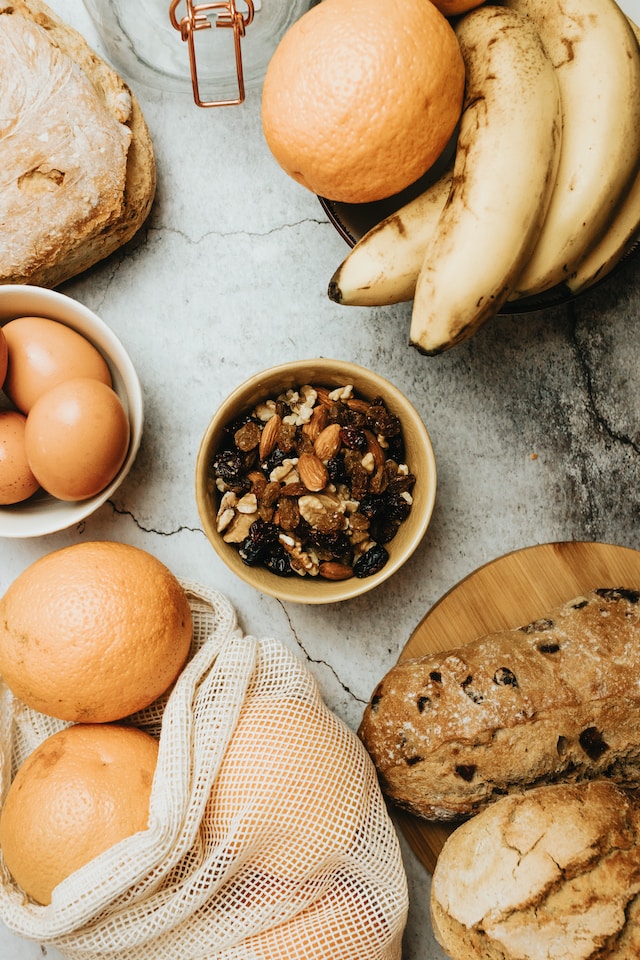
What Are Whole Foods
When following a whole food plant-based diet, it’s important to understand what whole foods are and how they differ from processed foods.
Whole foods are foods that are minimally processed and are as close to their natural state as possible. These foods are typically nutrient-dense and provide the body with the vitamins, minerals, and fiber it needs to function properly.
Here are some examples of whole foods that you can include in your diet:
- Fruits: Apples, bananas, oranges, berries, etc.
- Vegetables: Leafy greens, broccoli, carrots, sweet potatoes, etc.
- Whole grains: Brown rice, quinoa, oats, barley, etc.
- Legumes: Beans, lentils, chickpeas, etc.
- Nuts and seeds: Almonds, walnuts, chia seeds, flax seeds, etc.
It’s important to note that not all plant-based foods are whole foods. For example, processed foods like vegan burgers, vegan cheese, and vegan ice cream can be plant-based but are not whole foods.
These foods are often high in added sugars, salt, and unhealthy fats, which can have negative effects on your health.
When following a whole food plant-based diet, it’s important to avoid processed foods and focus on consuming whole, nutrient-dense foods. This will ensure that you are getting all of the essential nutrients your body needs to thrive.
By including a variety of whole foods in your diet, you can ensure that you are getting all of the essential nutrients your body needs to function properly.
Plus, whole foods are often more satisfying and can help you feel fuller for longer periods of time, which can help you maintain a healthy weight.
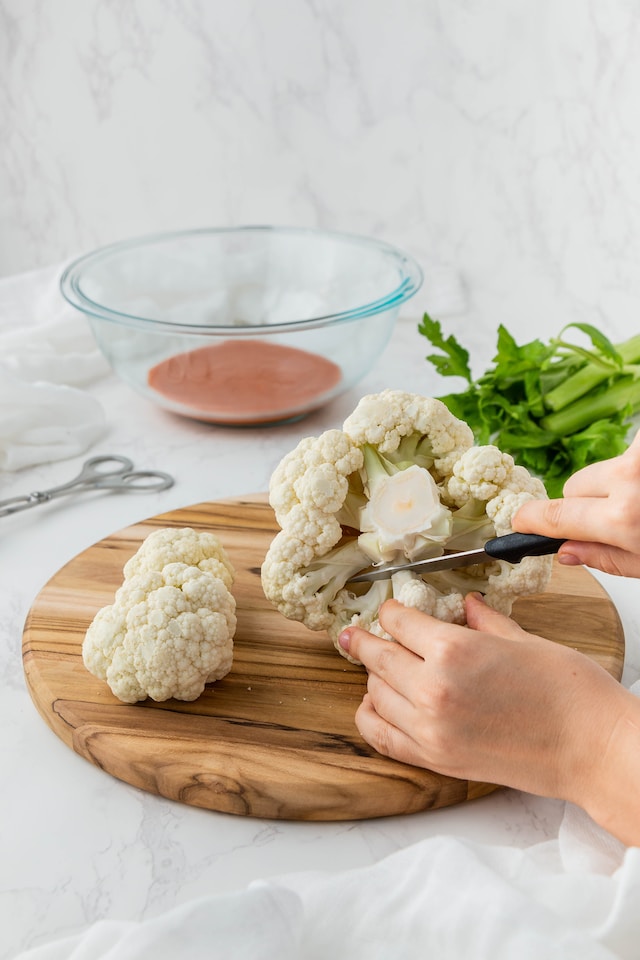
The Importance of Plant-Based Diet
Making the switch to a plant-based diet can have a significant impact on your overall health and well-being. Here are some reasons why a whole food plant-based diet is so important:
1. Nutrient-Dense Foods
Plant-based diets are rich in vitamins, minerals, and other essential nutrients that your body needs to function properly.
Eating a variety of fruits, vegetables, whole grains, legumes, and nuts can provide your body with a wide range of essential nutrients that can improve your health and reduce the risk of chronic diseases.
2. Reduced Risk of Chronic Diseases
Studies have shown that following a plant-based diet can reduce your risk of developing chronic diseases such as heart disease, diabetes, and certain types of cancer.
This is because plant-based diets are naturally low in saturated fat and high in fiber, which can help improve cholesterol levels and reduce inflammation in the body.
3. Better Digestive Health
Plant-based diets are also great for your digestive health. The fiber found in plant-based foods helps to promote regular bowel movements and can improve overall gut health. This can reduce your risk of developing conditions such as constipation, diverticulitis, and inflammatory bowel disease.
4. Environmental Impact
Eating a plant-based diet is not only good for your health, but it is also good for the environment. Animal agriculture is a significant contributor to greenhouse gas emissions, deforestation, and water pollution.
By choosing to eat plant-based meals, you can help reduce your carbon footprint and contribute to a more sustainable future, making a positive impact on the planet.
5. Cost-Effective
A whole food plant-based diet can also be cost-effective compared to a typical Western diet that includes meat, dairy, and processed foods.
Plant-based proteins such as legumes, tofu, and tempeh are often cheaper than animal products, and buying fresh fruits and vegetables in season can save you money on your grocery bill.
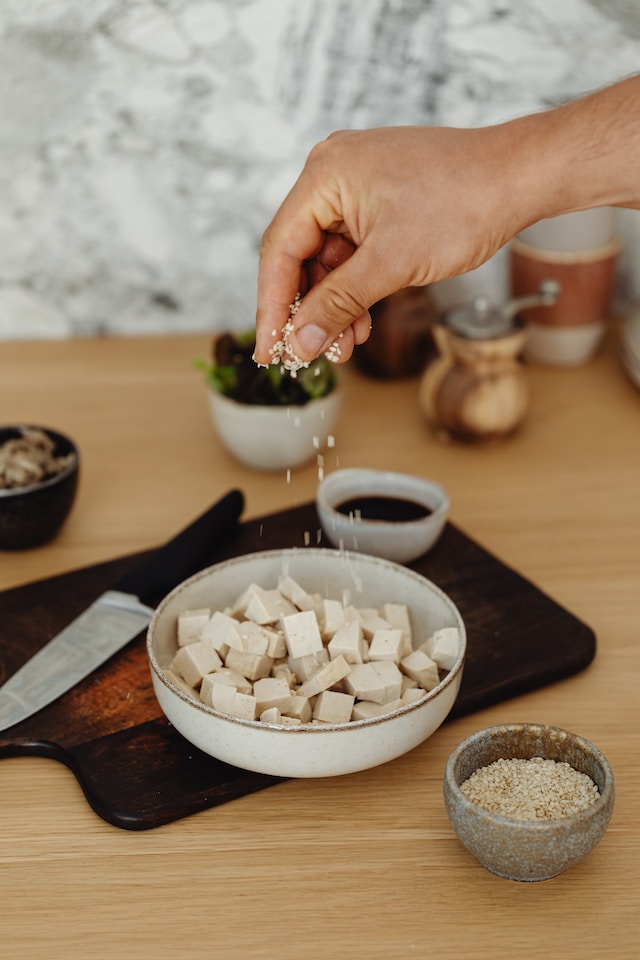
The 21-Day Challenge
Embarking on a 21-day whole food plant-based diet challenge can be a great way to kickstart your journey towards a healthier lifestyle.
This challenge involves eliminating processed and animal-based foods from your diet and consuming only whole, plant-based foods for 21 days straight.
The goal of this challenge is to help you develop healthier eating habits, reduce your risk of chronic diseases, and improve your overall well-being.
By following a whole food plant-based diet, you’ll be consuming foods that are rich in nutrients, fiber, and antioxidants, which can help boost your immune system, improve your digestion, and even help you lose weight.
During the 21-day challenge, you’ll need to plan your meals carefully to ensure that you’re getting all the nutrients your body needs.
Some of the foods you can include in your diet include fruits, vegetables, whole grains, legumes, nuts, and seeds.
You can also experiment with different plant-based recipes to keep things interesting and avoid getting bored with your meals.
To make things easier, you can also consider meal prepping and planning your meals in advance. This will help you save time and ensure that you always have healthy, plant-based meals on hand.
It’s important to note that while the 21-day challenge can be a great way to jumpstart your journey towards a healthier lifestyle, it’s not a magic solution.
It’s important to continue making healthy choices even after the challenge is over to maintain your progress and achieve your health goals.
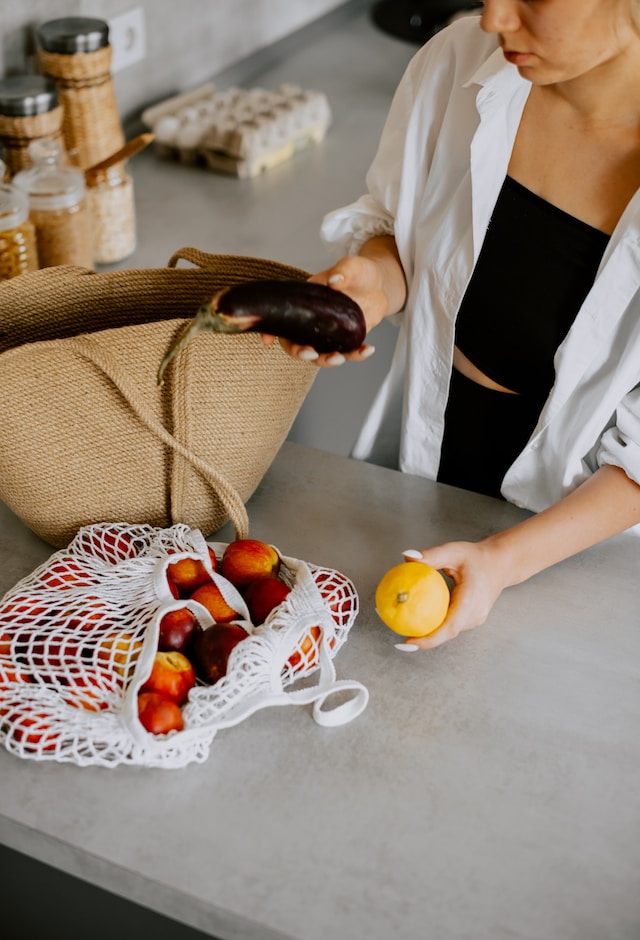
Planning Your Meals
When embarking on a 21-day whole food plant-based diet, it’s important to plan your meals in advance.
This will help you stay on track and ensure that you’re getting all the nutrients you need. Here are some tips to help you plan your meals:
Grocery Shopping Tips
Before you start your 21-day journey, take some time to plan out your meals for the week. Make a list of all the ingredients you’ll need and head to the grocery store. Here are some tips to help you make the most of your trip:
- Shop the perimeter of the store where the fresh produce, whole grains, and nuts are located.
- Choose a variety of colorful fruits and vegetables to ensure you’re getting a range of nutrients.
- Buy in-season produce to save money and get the freshest options.
- Opt for whole grains like brown rice, quinoa, and oats instead of refined grains like white bread and pasta.
- Look for plant-based protein sources like beans, lentils, tofu, and tempeh.
- Avoid processed foods and snacks that are high in sugar, salt, and unhealthy fats.
Sample Meal Plans
Here are some sample meal plans to help you get started on your 21-day whole food plant-based diet:
Day 1
- Breakfast: Oatmeal with fresh berries and almond milk
- Snack: Apple slices with almond butter
- Lunch: Chickpea salad with mixed greens, tomatoes, and avocado
- Snack: Carrot sticks with hummus
- Dinner: Lentil soup with whole grain bread
Day 2
- Breakfast: Whole grain toast with avocado and sliced tomato
- Snack: Fresh fruit smoothie
- Lunch: Quinoa and black bean bowl with roasted vegetables
- Snack: Edamame beans
- Dinner: Baked sweet potato topped with black beans, salsa, and guacamole
Day 3
- Breakfast: Tofu scramble with spinach and mushrooms
- Snack: Raw almonds and dried apricots
- Lunch: Whole grain wrap with hummus, vegetables, and grilled tempeh
- Snack: Homemade energy balls made with dates, nuts, and seeds
- Dinner: Brown rice stir-fry with mixed vegetables and tofu
Day 4
- Breakfast: Overnight oats with chia seeds, almond milk, and fresh fruit
- Snack: Celery sticks with peanut butter
- Lunch: Quinoa and chickpea salad with roasted vegetables
- Snack: Fresh fruit salad
- Dinner: Vegetable curry with brown rice
Day 5
- Breakfast: Whole grain toast topped with smashed avocado, cherry tomatoes, and balsamic glaze
- Snack: Whole grain crackers with hummus
- Lunch: Lentil and vegetable soup
- Snack: Fresh fruit smoothie with spinach and almond milk
- Dinner: Baked tofu with roasted sweet potatoes and green beans
Day 6
- Breakfast: Acai bowl topped with fresh berries, nuts, and seeds
- Snack: Homemade granola bars
- Lunch: Whole grain wrap with black beans, avocado, and salsa
- Snack: Carrot sticks with tzatziki dip
- Dinner: Quinoa stuffed bell peppers with marinara sauce
Day 7
- Breakfast: Smoothie with spinach, banana, and almond milk
- Snack: Trail mix with nuts, seeds, and dried fruit
- Lunch: Sweet potato and black bean bowl with avocado and salsa
- Snack: Edamame
- Dinner: Vegetable stir-fry with brown rice
Day 8
- Breakfast: Oatmeal topped with fresh berries and almond butter
- Snack: Homemade vegetable chips
- Lunch: Whole grain wrap with falafel, hummus, and vegetables
- Snack: Fresh fruit salad with yogurt
- Dinner: Lentil Bolognese over whole wheat pasta
Day 9
- Breakfast: Smoothie bowl made with frozen berries, spinach, and almond milk
- Snack: Energy balls made with dates, nuts, and seeds
- Lunch: Quinoa tabbouleh salad with chickpeas
- Snack: Whole grain crackers with hummus
- Dinner: Vegetable and tofu stir-fry over brown rice
Day 10
- Breakfast: Whole grain toast topped with almond butter and fresh fruit
- Snack: Veggie sticks with hummus
- Lunch: Whole grain wrap with grilled vegetables, avocado, and balsamic glaze
- Snack: Fresh fruit smoothie
- Dinner: Zucchini noodles with marinara sauce and lentil meatballs
After day 10, you can either come back to day 1 and continue, or you can mix and match the meals from the previous days. Remember to stay hydrated by drinking plenty of water throughout the day and listen to your body’s hunger cues.
This 21 day whole food plant based diet is not just a temporary change, but rather an opportunity to develop healthier eating habits that will benefit both your physical and mental well-being in the long run.
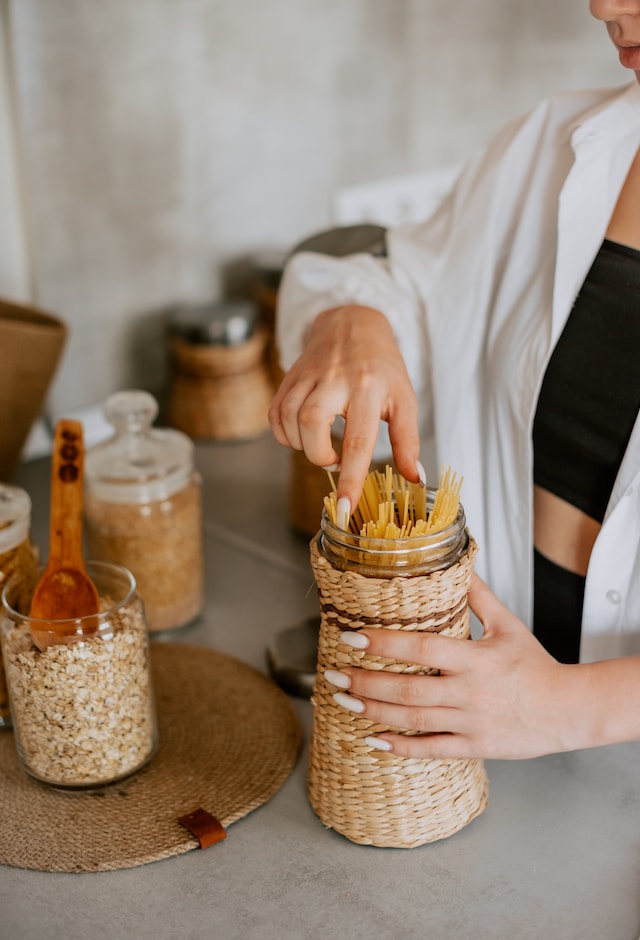
Preparation Tips
Preparing for a 21-day whole food plant-based diet may seem daunting, but with a little planning and preparation, it can be a breeze. Here are some tips to help you get started.
Kitchen Essentials
Before embarking on your 21-day journey, make sure you have the right tools in your kitchen. Here are some essentials you’ll need:
- A high-speed blender: A blender is essential for making smoothies, sauces, and dressings.
- A food processor: A food processor is great for chopping vegetables, making nut butters, and grinding grains.
- A good set of knives: A sharp knife will make meal prep a breeze.
- Cutting boards: Have a few cutting boards on hand to avoid cross-contamination.
- Measuring cups and spoons: Accurate measurements are important when following recipes.
- Pots and pans: Invest in a good set of pots and pans to make cooking easier.
- Storage containers: Have a variety of storage containers on hand to store leftovers and prepped ingredients.
Time-Saving Hacks
Meal prepping can save you time and make sticking to a whole food plant-based diet easier. Here are some time-saving hacks to help you on your 21-day journey:
- Batch cook: Cook large batches of grains, beans, and roasted vegetables to use throughout the week.
- Pre-chop vegetables: Chop vegetables ahead of time and store them in the fridge for easy meal prep.
- Use frozen fruits and vegetables: Frozen fruits and vegetables are a great way to save time and money.
- Cook once, eat twice: Double recipes and use leftovers for lunch or dinner the next day.
- Use a slow cooker: Slow cookers are great for making soups, stews, and chili with minimal effort.
By following these preparation tips, you’ll be well on your way to a successful 21-day whole food plant-based diet.
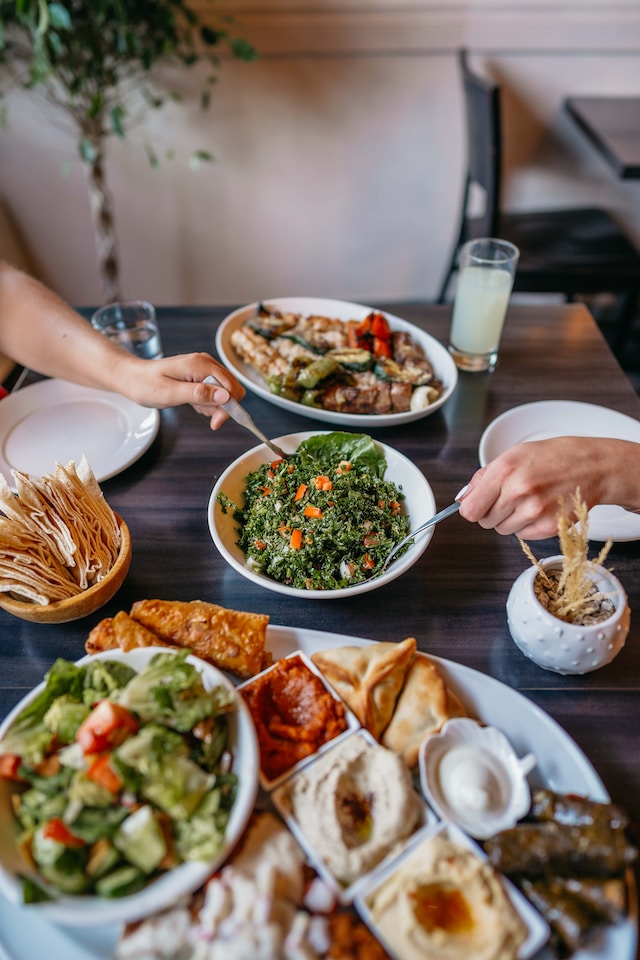
Maintaining Motivation
Starting a 21-day whole food plant-based diet can be exciting, but it can also be challenging to maintain motivation throughout the entire program. Here are some tips to help you stay motivated and on track:
Setting Realistic Goals
Setting goals is essential to staying motivated and on track. However, it’s important to set realistic goals that are achievable.
Setting unrealistic goals can lead to disappointment and frustration, which can make it harder to stay motivated.
Start by setting small goals that are achievable within a reasonable time frame. For example, instead of setting a goal to lose 20 pounds in 21 days, set a goal to lose 1-2 pounds per week.
This is a more achievable goal that can help you stay motivated and on track. Later on, you can set bigger goals as you become more accustomed to the diet.
Tracking Progress
Tracking your progress can help you stay motivated and on track. Keep a food journal to record what you eat and how you feel. This can help you identify patterns and make adjustments as needed.
You can also track your progress by taking measurements and weighing yourself regularly. This can help you see how your body is changing and provide motivation to keep going.
Another way to track progress is to take before and after photos. This can help you see the physical changes in your body and provide motivation to keep going.
Finding Support
Sometimes, it can be really challenging doing something on your own. That’s why finding support can be crucial to staying motivated during a 21-day whole food plant-based diet.
You can find support in various ways, such as joining online communities, attending local meetups or events, and connecting with friends or family members who are also following a plant-based diet.
Having someone to talk to, share recipes and tips with, and hold you accountable can make a huge difference in staying motivated and on track.

Overcoming Obstacles
Embarking on a 21-day whole food plant-based diet can be a challenge, especially if you are new to this lifestyle. Here are some tips to help you overcome common obstacles:
Dealing with Cravings
It’s natural to experience cravings when you switch to a new diet. To overcome cravings, make sure you are eating enough calories and nutrients.
If you are feeling hungry, try snacking on some fresh fruit or vegetables. You can also try drinking a glass of water or herbal tea to help curb your appetite.
Another way to overcome cravings is to find healthy alternatives to your favorite foods. For example, if you are craving something sweet, try snacking on some dates or making a fruit smoothie.
If you are craving something savory, try making some roasted chickpeas or vegetable chips, or opt for a hearty veggie-packed dish.
Social Situations
Social situations can be challenging when you are on a plant-based diet. You may feel pressure to eat foods that are not part of your diet, or you may feel left out if everyone else is eating something you can’t have. Here are some tips to help you navigate social situations:
- Communicate with your friends and family. Let them know about your dietary restrictions and why you are following a plant-based diet. They may be more understanding and supportive than you think.
- Offer to bring your own food. If you are going to a party or event, offer to bring a dish that fits your dietary restrictions. This way, you can ensure that there will be something for you to eat.
- Do your research. If you are going to a restaurant, check the menu ahead of time to see if there are any plant-based options. You can also call ahead to ask if they can accommodate your dietary restrictions.
Remember, the most important thing is to stay true to your goals and beliefs. Don’t let social pressure or cravings derail your progress. Stay focused, stay motivated, and stay committed to your 21-day whole food plant-based diet.

Benefits of the Diet
If you are considering adopting a 21 day whole food plant based diet, you may be wondering about the benefits. Here are some of the benefits you can expect from this eating pattern.
Health Benefits
One of the main benefits of a whole food plant based diet is improved health. This eating pattern has been shown to reduce the risk of chronic diseases such as heart disease, diabetes, and cancer.
Plant based foods are generally lower in saturated fat and cholesterol, and higher in fiber, vitamins, and minerals. By eating a variety of whole plant foods, you can ensure that you are getting all the nutrients your body needs to function at its best.
In addition to reducing the risk of chronic diseases, a whole food plant based diet can also help with weight management.
Plant based foods tend to be lower in calories than animal products, which can help you maintain a healthy weight. They are also more filling due to their high fiber content, which can help you feel satisfied and avoid overeating.
Environmental Impact
Another benefit of a whole food plant based diet is its positive impact on the environment. Animal agriculture is a major contributor to greenhouse gas emissions and deforestation.
By reducing or eliminating animal products from your diet, you can reduce your carbon footprint and help protect the planet.
Plant based diets also require less water and land to produce than diets that include animal products.
This means that by eating more plants, you can help conserve natural resources and reduce the strain on the planet’s ecosystems.
Overall, a 21 day whole food plant based diet can offer a range of benefits for both your health and the environment.
However, it doesn’t solely mean that focusing on whole plant foods and eliminating all animal products is the only way to be healthy. Moderation, balance, and variety are key components of a healthy diet.

Beyond the 21 Days
Congratulations on completing the 21-day whole food plant-based diet challenge! You have taken the first step towards a healthier lifestyle, and now it’s time to think about what comes next. Here are some tips on how to continue and adapt the diet to suit your needs.
Continuing the Diet
If you enjoyed the 21-day challenge and want to continue eating a whole food plant-based diet, there are a few things you can do to make it easier.
- Keep your favorite plant-based meals on repeat: Did you love the sweet potato gnocchi or the creamy pasta and broccoli bake? Bookmark those favorites, then make them again. Working in a few simple, tried-and-true recipes every week will take the guesswork out of that age-old question: What’s for dinner?
- Plan ahead: Planning your meals in advance can help you stay on track. Take some time each week to plan out your meals and snacks, and make a grocery list. This will help you avoid impulse buys and ensure that you have everything you need to make healthy meals.
- Try new recipes: Eating the same meals every week can get boring. Experiment with new recipes and ingredients to keep things interesting. There are plenty of plant-based cookbooks and websites that can provide inspiration.
Adapting the Diet
If you found the 21-day challenge too restrictive or difficult to maintain, don’t worry. You can still reap the benefits of a whole food plant-based diet by adapting it to suit your needs.
- Allow for flexibility: You don’t have to be 100% plant-based to see the benefits of a whole food plant-based diet. If you want to include some animal products in your diet, that’s okay. Just make sure that most of your meals are based around whole plant foods.
- Make gradual changes: If you’re finding it difficult to make the switch to a whole food plant-based diet, try making gradual changes. Start by adding more fruits, vegetables, and whole grains to your diet, and gradually reduce your intake of animal products.
- Seek support: Changing your diet can be challenging, so don’t be afraid to seek support from friends, family, or a registered dietitian. They can provide encouragement, advice, and accountability as you work towards your health goals.
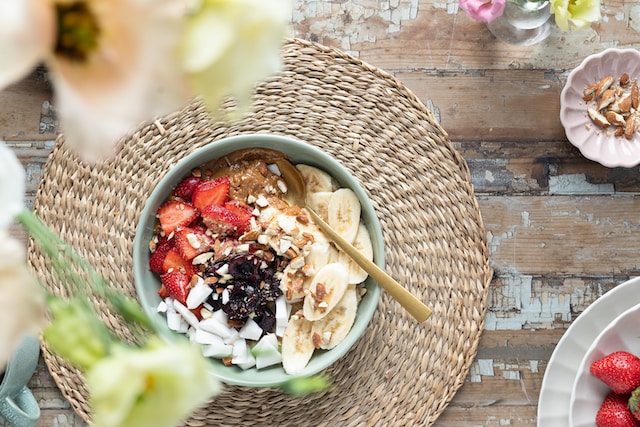
Ready to Start Your 21-Day Journey?
Although it’s still a myth, it’s believed that it takes 21 days to form a new habit. So why not use these 21 days to kickstart a healthier lifestyle with a whole food plant-based diet?
Remember, it’s not just about losing weight or following a trend; it’s about nourishing your body and protecting the planet at the same time.
Take the challenge and see for yourself how this diet can improve your overall health and well-being. And who knows, you may even discover new favorite recipes and foods along the way.


